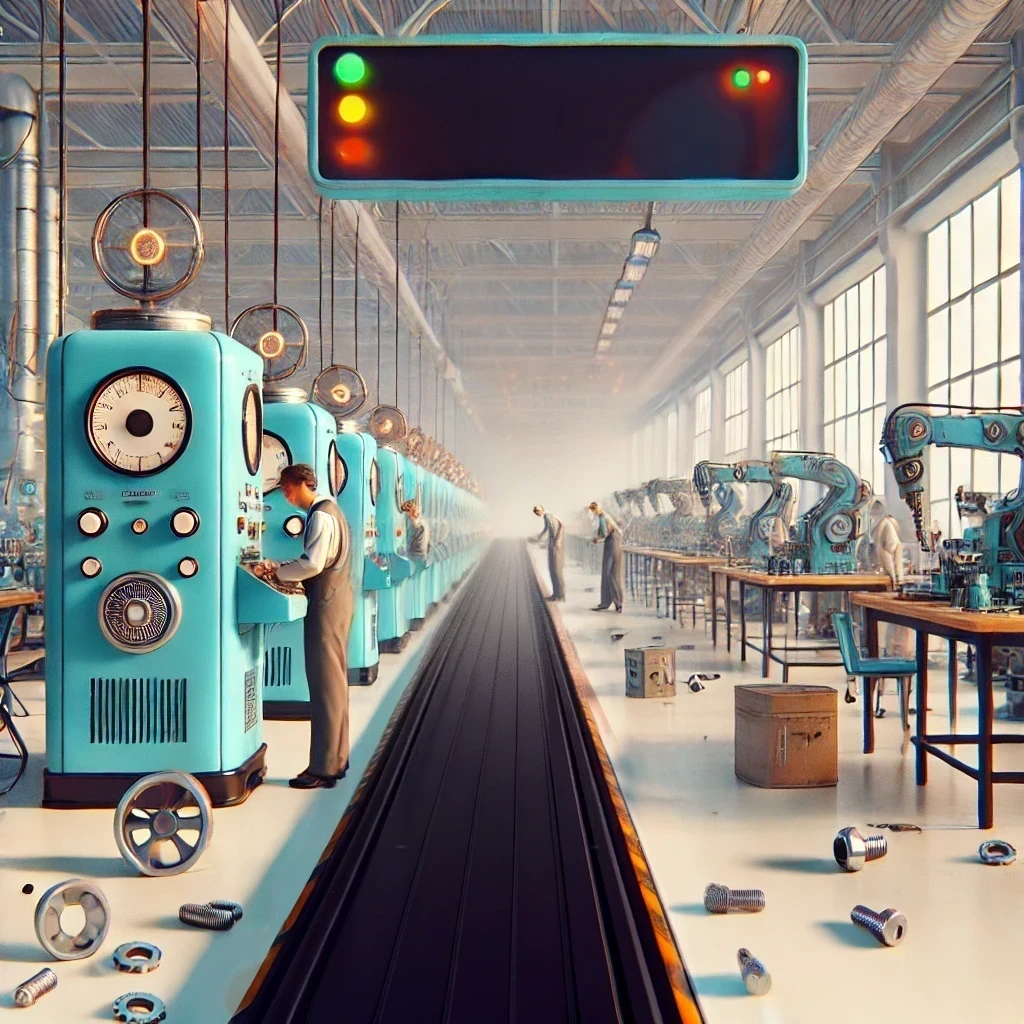In today’s fast-paced digital age, cybersecurity breaches are becoming alarmingly frequent. Companies scramble to protect their systems, but there’s a deeper issue few are willing to acknowledge. The code defects that lead to Cybersecurity Vulnerabilities. The root cause of many compromises and breaches doesn’t solely lie with the hackers, but with the very professionals who build and maintain these systems. IT professionals and software developers, in their rush to be first to market, have often sidelined quality and security in favor of speed. This isn’t a new problem—it’s a cultural issue that has persisted across industries for decades. To understand the gravity of the current cybersecurity crisis, we need to look beyond the tech world and explore historical parallels in industries like automotive and aerospace, where prioritizing speed over quality led to disaster.
This rush for speed not only compromises code quality or cybersecurity but also affects the very survival of businesses. A study on corporate longevity found that companies listed before 1970 had a 92% chance of surviving the next five years, but for companies listed from 2000 to 2009, that survival rate dropped to just 63%. The trend shows that modern companies, especially in tech, are at a much higher risk of failure, driven by rapid development cycles and the constant pressure to innovate quickly without focusing on long-term quality.
Speed Over Quality: A Tale of Two Industries
The problems we see in cybersecurity today echo what happened in the American automotive industry during the 20th century. In the post-war era, Detroit was the global leader in car manufacturing. American cars symbolized power and prestige, and no other country could compete. However, in the rush to produce more vehicles quickly, quality was neglected. The focus on speed and quantity came at the expense of durability, safety, and innovation.
That’s when Japanese automakers, particularly Toyota and Honda, stepped in. They introduced a culture that placed a premium on precision and quality. They started producing vehicles that were reliable, affordable, and durable. Over time, Japanese cars, known for their superior craftsmanship and fewer defects, overtook American cars in sales and customer satisfaction. Korea and now China have followed suit, dominating the global market with affordable, high-quality electric vehicles (EVs).
This same pattern is emerging in cybersecurity. As American tech companies prioritize speed, countries like China are honing their focus on quality, security, and efficiency. If this trend continues, U.S. tech giants may face the same fate as Detroit automakers—losing their leadership position due to their relentless focus on quantity over quality.
Boeing’s Downfall
The story doesn’t end with cars. A similar narrative unfolded in the U.S. aerospace industry, once dominated by Boeing. Boeing was the gold standard in commercial aviation, setting and even writing the industry’s standards. However, the tragic crashes of two Boeing 737 Max planes in 2018 and 2019 exposed how Boeing’s shift from engineering excellence to prioritizing profit margins had catastrophic consequences.
Investigations revealed that critical safety features were overlooked or rushed, leading to preventable crashes. This cultural shift at Boeing, where speed and cost-cutting measures took precedence over safety, mirrors what we now see in tech firms. New features are rushed to market, with minimal attention paid to security, creating vulnerabilities that cybercriminals are eager to exploit.

The “Hero” Complex in Tech
At the heart of the problem is a pervasive culture in the tech industry: the “superhero syndrome” and the obsession with being the first mover. Developers are often seen as heroes for delivering rapid results, but this hero complex comes at a cost. As of August 2024, there have been 52,000 newly discovered Common Vulnerabilities and Exposures (CVEs) globally. This is a sharp increase from the 29,000 reported in 2023. The numbers tell a clear story—the pace of software development has outstripped security practices.
These vulnerabilities are not just technical flaws; they represent real risks. The Log4j vulnerability, the SolarWinds attack, and the Colonial Pipeline ransomware attack are just a few examples of major breaches that stemmed from overlooked or rushed security measures. In 2017, the Equifax data breach exposed the personal information of 147 million Americans due to an unpatched vulnerability in their web application framework. These incidents highlight a systemic failure to prioritize security, with devastating real-world consequences.
Furthermore, digital businesses, while offering advantages such as low infrastructure costs and faster scalability, are especially vulnerable to quick imitation. The rapid development cycles that prioritize speed over security leave companies exposed to competitors who can replicate their functionality faster than ever. For instance, Dropbox pioneered user-friendly cloud storage, but its basic functionality was soon mimicked by tech giants like Microsoft, Google, and Apple. Similarly, Evernote was once the go-to organizational app, but its features were quickly duplicated by rivals. The rush to roll out new features without securing a long-term competitive edge creates long-term vulnerability, making the pursuit of speed a double-edged sword for tech companies.
Vulnerabilities take the Edge Away
Like the auto and aerospace industries before it, the American tech industry’s obsession with speed could lead to its downfall. Countries like China are already positioning themselves to challenge U.S. dominance in fields like artificial intelligence and telecommunications. Chinese tech companies are outpacing their American counterparts in innovation, precision, and product reliability because they focus on long-term strategy rather than rapid delivery.
The technology sector is especially vulnerable to “creative destruction,” a phenomenon where rapid innovation cycles can quickly erode competitive advantage. Unlike traditional industries, where product cycles were slower, the tech industry faces accelerated innovation cycles, leaving companies like Evernote, Dropbox, and Skype scrambling to stay relevant. If U.S. companies continue to churn out insecure software while others focus on security and quality, American tech hegemony could quickly erode, following the same path as the automakers and aerospace leaders who were once unchallenged.
The Solution: A Cultural Shift Toward Security and Quality
The tech industry needs a profound cultural shift. First, companies must stop glorifying leaders for quickly bringing flawed products to market. The superhero complex must give way to a culture of responsibility and accountability. The true heroes should be those who prioritize security, stability, and long-term quality over short-term gains.
Corporate leaders and developers alike must be held accountable for the security flaws they introduce. Take Microsoft as an example: despite its size and influence, the company continues to release operating systems riddled with vulnerabilities. Rewarding companies for rapid, low-quality releases only perpetuates the cycle of insecurity.
Second, industry-wide standards must be raised. Just as Japanese automakers revolutionized the auto industry with quality standards, the tech sector must adopt security-first principles. This means mandatory security training for developers, comprehensive code audits, and thorough testing before release. The “move fast and break things” mantra of Silicon Valley must be replaced with “move carefully and secure everything.”
Third, regulatory bodies must take stronger, more proactive measures. Instead of settling for easy political victories or superficial actions, they need to enforce rigorous security and quality standards across the tech industry. This includes holding companies accountable for the vulnerabilities they introduce, with meaningful penalties for those that cut corners. Weak oversight allows firms to prioritize speed and profit over public safety. Regulatory agencies must act as gatekeepers, ensuring that products meet strict security benchmarks before they reach the market.
Finally, consumers have a critical role to play. Companies continue to release low-quality, insecure products because the demand for convenience often outweighs the concern for security. But if consumers begin to prioritize security and reliability—by voicing their concerns, choosing safer alternatives, and holding brands accountable—this will push companies to change. The marketplace responds to consumer pressure, and by demanding better security practices, consumers can drive meaningful improvements in the quality of the products and services they use.
Change or Be Left Behind
History has made it clear—when industries prioritize speed over quality, they eventually crumble. The U.S. automotive and aerospace giants lost their edge because they chased short-term gains instead of long-term excellence. Today, the tech industry is heading down the same dangerous path. Developers and programmers, both individually and collectively, hold the power to change this. In fact, over 90% of data breaches in 2023 were caused by vulnerabilities that could have been prevented. It’s not just about meeting deadlines or pushing out new features. It’s about realizing the real cost of cutting corners on security. If the people building our digital world don’t take responsibility now, American tech dominance could fall apart. We’ve seen it happen before with Detroit and Boeing. Now is the time for every developer to step up and put security and quality first.
Did you like this article on code quality and Cybersecurity Vulnerabilities.
If you like this story you should check out some of the other stories in the Cybersecurity section
You can learn more about open vulnerabilities at Mitre CVE and here.



